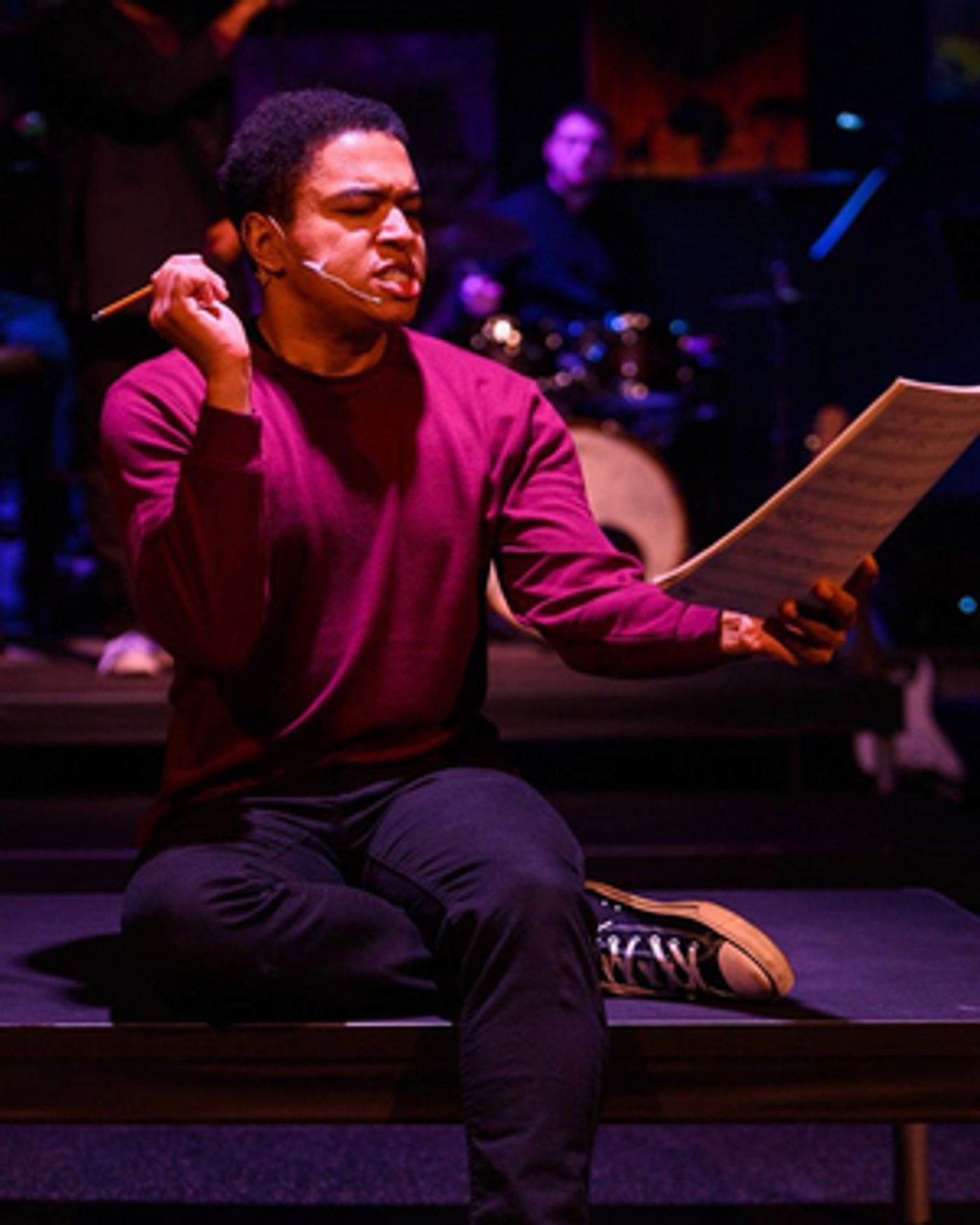Review: PASSING STRANGE at City-Theater Co

Founded in 1993 - and now under the artistic and musical leadership of Kerry Kristine and Joe Trainor - City-Theatre stays close to its roots to take risks and eschews redundancy in staging PASSING STRANGE at Opera Delaware's Black Box on the Riverfront.
Their success has led them to grants from the DE Division of The Arts and a home at The Grand Opera House in Studio One.
If there is a niche into which the production falls Aisle Say cannot name it. Perhaps it creates its own. It's all rock with a center of black gospel church. But thrown in the mix is goth and punk, all arising from the experiences and coming-of-age of composer Stew. It is not only innovative, but demanding of your attention.
Hitting Broadway in 2008, none other than Spike Lee made a film aired in 2009.
As Director Jeff Hunsicker states in the program, it is a musician's search for "The Real", i.e. a meaning and purpose in life. It's a full-throated rock opera in a theatrical setting.
The title itself comes from Shakespeare's OTHELLO. "She gave me for my pains a world of sighs;
She swore, in faith 'twas strange, 'twas passing strange".
And real it gets. It is the first production of City-Theater with an all-black cast and these exceptionally talented and passionate actors embrace the audience from the http://city-theater.org/opening "Prologue" and don't let go until final curtain, asking us all to "Love Like That". It is raw and edgy (that's what CTC does) but its message is provocative, sincere and 'real'.
The cast was so superb, so fluid, so confidant, so excellent, I thought they were all a professional cast brought in by Kristine and Trainor. The music was diverse. Jukebox musicals are all the contemporary rage. This is not one of them, but I heard vestiges of Lou Reed and The Velvet Underground, The B52's (a long way from Lou Reed), Philly street corner do wop ('Philistines'), punk ('Sole Brother' and, of all things Lerner and Loewe.
The Narrator (Chris Banker), confidant in demeanor and with vocal agility to sing all genres, sets the stage for us and is our guide. The Narrator is akin to the Emcee in CABARET, overseeing the proceedings and filling in details of the travels of the Youth. Banker's strong stage presence and soulfulness gives the audience great comfort and keeps us focused. This is vitally important due to the episodic nature of the production.
The anonymous protagonist, only called Youth (Dominic Santos) sets about on a picaresque adventure to find "the real". It is complicated by his need to rebel against his Mother (Meredith Bell) Mother pressures Youth to remain a true Baptist in the rousing, roof raising ensemble number "Baptist Fashion Show". "You need blackening up", she rails at him.
Youth is dragged into church by Mother. He is intrigued by the environment and joy of the parishioners, equating gospel to rock & roll ("Blues Revelation / Freight Train").
The remaining cast are listed as Ensemble. But to my mind, they are all leading characters due to their being on stage the majority of time and dancing and singing in the majority of the 30 songs. To a man and woman, all have inspiring voices and can switch from gospel to rock at a moment's notice. They are Jared Christopher, Kyleen Shaw, Dana Hoffman and Philip Anthony Wilson.
Youth's travels take him to promiscuous 'Amsterdam', where sex and drugs are easy to be had. The very funny "We Just Had Sex" follows the drugs! He leaves his lover for Berlin and she tells him not to return. Now he understands love and love lost, part of finding 'the real', Act 1 ends with an uplifting and evocative 'Paradise'/'Starting to Feel Real'.
Act 2 speaks of what is really real, only love ("Damage"). Youth's Mother is begging him to come home. He fights this.
The Narrator's self-reflections promptly enter into the Youth's story ("Work the Wound"), concluding with the unexpected scene of the Youth at his mother's funeral. With this surprising turn, the tone of the play shifts from largely comedic to suddenly heavy-hearted. The Narrator and the Youth confront each other directly and in a serious moment for the first time as the Youth copes with his grief; dealing with the loss of the same mother, it is clear now that the Narrator and Youth represent the same person at two different times in his life ("Passing Phase"). The Youth, after declaring that only art can correct the mistake known as life, resurrects his mother's spirit through his art ("Is It Alright?"). Ultimately, however, only the more mature Narrator remains onstage, professing the need for something beyond "the real" and that this is love ("Love Like That").
Finally, we understand the 'real' is not the real. The 'real' is the beginning, a construct.
Joe Trainor's Passing Strange band was fantastic, able to deliver in so many genres with so many songs. Trainor was on the keyboard with Joshua Dowiak (bass), Joey Lopes (guitar) and Dan Getty (drums).
Ashley SK Davis was choreographer and exhibited creativity in movements in a very limited stage footprint.
Photography by Joe Del Tufo of Moon Loop
See what is happening next with City Theatre
Reader Reviews
Videos

